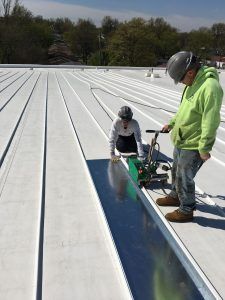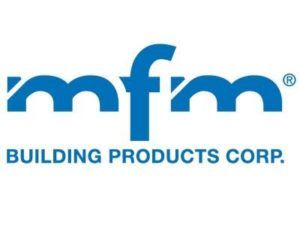
There are many factors to consider when it comes to identifying warranty priorities for a given roofing system project; so many that the task often leaves facility managers feeling overwhelmed.
The experts at St. Louis-based Bade Roofing Company recommend approaching a roofing project and its warranty with realistic expectations, working with trusted manufacturers and contractors, and implementing a preventative maintenance plan to protect their roofing investment.
To help facility managers identify the warranty priorities on their next roofing system project, Bade Roofing has identified several key questions to ask:
What kind of roofing system coverage do we truly need?
There are a wide range of offered warranties—some that only cover materials and others covering both labor and materials. Just as their name implies, material-only warranties back the materials supplied by the manufacturer, protecting facility managers and owners against manufacturing defects that may cause leaks. However, material-only warranties don’t cover the roofing system’s installation, nor do they include any on-site inspections. In fact, when it comes to remedy provisions, these types of warranties generally send out a patch kit or replacement material.
With labor and material warranties, the roofing system has coverage for both the products and their installation. These warranties require total system installation by licensed or approved contractors as well as inspection by the manufacturer’s technical representative. Remedies vary, but in general, the warranty includes repairs for defective workmanship and replacing leak-causing materials. For the most cost-effective, comprehensive warranty solutions, consider those that cover both labor and materials.
Should we get a “no dollar limit,” original cost, or pro-rated warranty?
When you have a “no dollar limit” warranty, manufacturers will spend whatever it costs to repair a roofing system leak. An original cost warranty has manufacturers obligated to repair leaks costing up to the total of the “original cost” of the roofing purchase. Same as with your car’s tires, pro-rated warranties diminish in value over their lifespan. For the best warranty coverage, go for “no dollar limit” and “non-pro-rated” warranties.
If our roof leaks, would we use the warranty or file an insurance claim?
While a manufacturer’s warranty covers leak repairs, it won’t cover consequential damages. If your roof leaks and damages property interiors, this is when your facility might file an insurance claim to cover these items. However, roofing warranties have exclusions. In general, they are limited to leaks caused by storms incurring certain wind speeds. Damages incurred during a Category 5 hurricane, for example, are not going to be covered by a roofing warranty. While a warranty might include damages caused by 55 mph winds, roofing manufacturers aren’t obligated to fix a leak resulting from a Category 1 hurricane with 74 to 95 mph winds. In the event of a hurricane, or reasons excluded from a roofing warranty, facility professionals may be filing an insurance claim.
Who backs the warranty, the manufacturer or the contractor?
Facility professionals will want a manufacturer’s warranty. Proper installation is critical, with the best roofing warranties awarded for the best roofing installation. So, how do you ensure your roof is installed properly for the best warranty coverage? Manufacturers recognize contractors who continually install their products with the utmost quality. For superior installation, use commercial roofing contractors who has received industry awards from manufacturers including: Versico’s Gold Medal Award (for providing high-quality installations on a consistent basis) to Firestone’s Inner Circle of Quality Award (one of the most prestigious honors in the commercial roofing industry), and Carlisle’s Hall of Fame (for completing at least 250 “Perfect 10” roofing installations, a category that recognizes superior workmanship, consistency and continued dedication to perfection.
Which warranty will make our roofing system last the longest?
Warranties aren’t the reason why a roofing system lasts a long time. A roofing system’s longevity depends on its quality, design, materials, installation and roofing maintenance. When developing your warranty plan, make routine maintenance a priority. You can further protect your roof from damage by monitoring who has access to your roof and allowing only certain staff to walk the roof after a storm to remove debris and unclog drains.
About Bade Roofing Company, Inc.
Founded in 1954, Bade Roofing Company, Inc. is one of St. Louis, Missouri’s premier family-owned and operated commercial and industrial roofing specialists. Bade Roofing uses a highly-trained and skilled union workforce to install the highest quality roofing systems on major retail centers, grocery stores, hospitals, schools, warehouses and office buildings. Working directly with facility managers and building owners, and in partnership with local architects, designers and roofing consultants, Bade Roofing also provides comprehensive roof inspections and survey reports, leak finding and repair services, green roof installation, and licensed asbestos roofing removal and abatement. For more information about Bade Roofing, call 314-892-1331 or visit www.baderoofing.com.


























